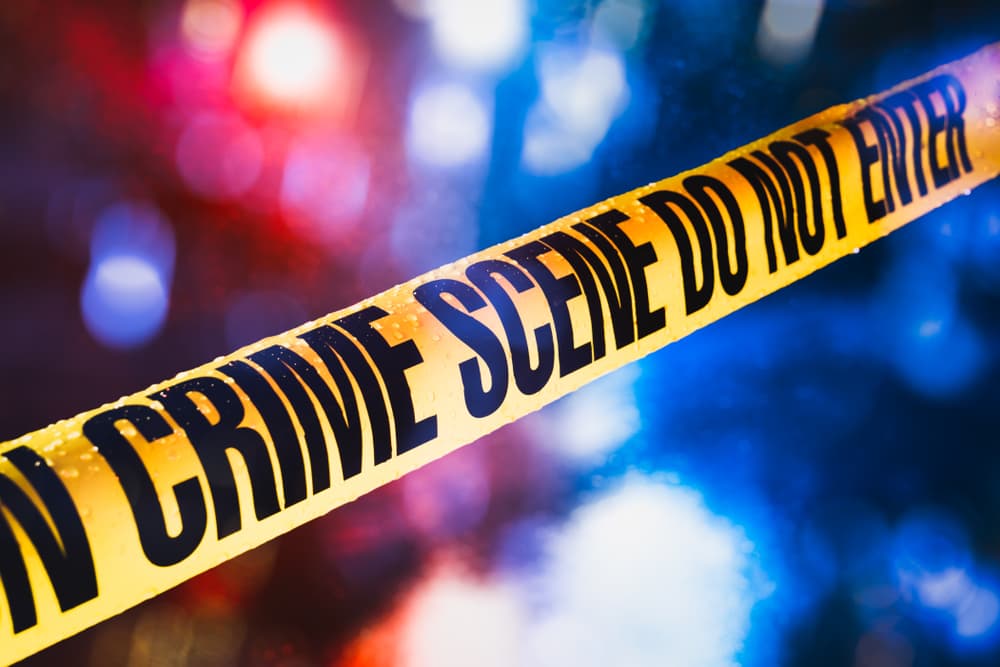Negligent homicide occurs when a person's criminally negligent actions result in another person's death. While specific definitions vary by state, criminal negligence generally covers two key elements:
- The disregard of a known or obvious risk
- A failure to consider the life and safety of others
In essence, criminal negligence fails to recognize an obvious and unjustifiable risk or that a person's recklessness can result in someone's death. Therefore, negligent homicide involves actions that can easily lead to a high risk of death.
If you're facing negligent homicide charges, having a criminal defense lawyer by your side can be essential.
Schedule Your Free Consultation
Talk to a Criminal Defense Lawyer

Your best ally is an attorney if you've been charged with negligent homicide. They can support your legal rights and strategize a defense that will improve the outcome of your case.
Common Examples of Negligent Homicide
Several scenarios can commonly result in negligent homicide charges:
- Distracted driving, such as texting while driving too fast in a busy metropolitan area
- Discharging firearms recklessly, like shooting a gun into the air during a celebration
- Child endangerment, such as leaving children unattended in vehicles when it's hot outside
- The dangerous handling of weapons, including careless manipulation of loaded firearms
Negligent homicide is considered a reckless disregard for people's lives. If you don't take reasonable precautions to prevent harm or a death, you may be charged with this crime.
How Negligent Homicide Relates to Other Homicide Charges
Involuntary Manslaughter
Many states treat negligent homicide and involuntary manslaughter as essentially equivalent offenses. To understand this, it's important to look at the definitions of involuntary manslaughter and negligent homicide and how they compare.
For you to be charged with involuntary manslaughter, you were aware of the risk and still behaved recklessly or with gross negligence. Its definition is broader than negligent homicide.
If you're charged with negligent homicide, you failed to exercise reasonable care to prevent the death.
Other Forms of Homicide
Other types of homicide in include:
- Voluntary manslaughter - intentionally killing someone without premeditation; and
- Vehicular homicide - killing another party with your vehicle as a result, for instance, of impairment or recklessness. Some states, like North Carolina, charge vehicular homicide separately, which may also include driving while impaired.
Legal Consequences of Negligent Homicide
Negligent homicide typically carries serious penalties as a felony offense, including:
- Multiple-year prison sentences
- Substantial fines
- Long-term problems with getting employment
A Loss of Rights
You may also forfeit certain rights, as follows:
- You can't vote when serving a prison sentence or while on probation for a felony.
- You can't own a gun after a felony conviction
- You won't be able to hold public office.
- You can't serve on a jury.
- You may lose your citizenship rights.
- You can't take part in a federal assistance program, such as student loans, food stamps, or medical insurance plans.
Defense Strategies

Defendants facing negligent homicide charges have several potential legal defenses available:
Self-Defense
To successfully claim self-defense, defendants must demonstrate:
- A reasonable belief in immediate danger
- Use of the same level of force to address the threat
Accidental Death
An accident defense requires proving:
- Absence of criminal intent
- No criminally negligent behavior
- Engagement in lawful activities when the death occurred
Insufficient Evidence
Defense attorneys may challenge the prosecution's evidence by:
- Questioning witness statements and their reliability
- Challenging forensic evidence
- Identifying gaps in the prosecution's case
Lack of Foreseeability
This argument shows that the defendant could not have reasonably anticipated that their actions would lead to a fatal outcome.
Expert Testimony
Using the testimony of an expert witness can help explain certain factors or conditions that may have contributed to the death.
Why You Should Retain Legal Representation
Given the factors surrounding negligent homicide cases, professional legal representation is critical. When seeking legal counsel, remember that -
- Most criminal defense attorneys offer free initial consultations
- The attorney-client relationship protects all communications
- A criminal defense attorney can identify the most effective defense strategies
Important Considerations
State Variations
State laws vary significantly regarding:
- Specific definitions of criminal negligence
- Severity of penalties
- Available defenses
- Statute of limitations
Evidence Requirements
Prosecutors must typically prove:
- The defendant's actions met the legal standard for criminal negligence
- A direct causal connection existed between these actions and the death of the other party
- Legally justifying circumstances can be shown to be absent
What to Do When Seeking Legal Assistance
If facing negligent homicide charges, you should contact a criminal defense attorney who has handled cases like yours immediately. Avoid discussing the case with anyone except your attorney. And, remember, that early legal intervention often leads to better outcomes in criminal cases.
How an Attorney Can Help Your Defense for Negligent Homicide

A criminal defense lawyer who defends a client against negligent homicide may use one or more angles when defending their client. For example, they may:
- Challenge the elements of negligence. Did the defendant act recklessly or did they take reasonable precautions? In turn, a lawyer may argue that the defendant met the standard of care, given the situation.
- Question whether the actions of the defendant were the direct cause of the other party's death. An attorney may do this by identifying the contributing factors to or intervening causes of the incident.
- Present proof that certain safety protocols were followed. A lawyer can show that the defendant had observed standard procedures and show training or certifications, if applicable.
- Show that external factors were involved that were beyond the defendant's control. For instance, the incident involved an emergency, requiring a quick decision.
- Challenge the collection methods of the evidence as well as question witness credibility.
- Review if the defendant's rights were handled properly.
Proving a Negligent Homicide
To prove a negligent homicide, a prosecutor must establish four key elements. These elements are:
- A duty of care, or the defendant was legally obligated to exercise reasonable care
- A breach of the duty of care - the defendant failed to meet this obligation
- Causation - the breach directly led to the cause of death
- Damages - death was the result
Proving that Negligence Wasn't the Reason
While an attorney might argue that the "homicide" was an accident and that it was tragic, it still did not result from criminal negligence. Instead, the defendant did not foresee any risk of harm or that their behavior was careless and their actions were not a gross deviation from what a reasonable individual would have done, given the same circumstances.
Talk to a Criminal Defense Lawyer Today
If you've been charged with negligent homicide, a criminal defense lawyer's help can be invaluable. Contact an attorney today. They can advise you about your rights and plan the defense for your case.